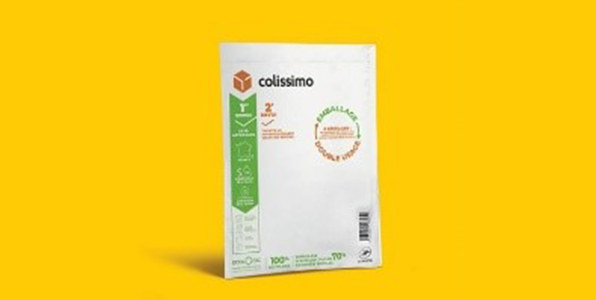La Poste groupe's resources policy is aimed at the rational management of resources at all levels of the company. In addition to transforming its own operations, this policy is reflected in the development of circular economy solutions for its customers.
Key figures source + figure monitored by the mission committee
In 2023, the Group donated 4,900 items of IT equipment for reuse in a spirit of solidarity.
+ Over 13,400 tonnes of material consumption saved by extending the lifespan of its IT equipment.
1.6 million euros saved in 2023 by reusing parts recovered from mail sorting machines to repair other machines.
Each year, the Mission Committee verifies the compliance of La Poste's objectives concerning the consumption of materials saved by extending the lifespan of IT equipment (telephones, computers, etc.).
A key partner in the circular economy
New local logistics services for the circular economy
Thanks to its expertise in reverse logistics, La Poste Groupe is developing new local logistics services for the circular economy. It captures diffuse resources, massages them, adds value to them and directs them to recycling and reuse players. A few examples:
For 10 years, La Poste has been working to collect and recycle office waste with its dedicated subsidiaries Recygo and Nouvelle Attitude, a social integration company. In January 2024, one year before the mandatory sorting of office waste by businesses, Recygo and La Poste set up France's first collection and recycling network for professional textiles.
Colissimo and Shop2Shop (by Chronopost) are supporting the development of second-hand platforms for private individuals, with facilitating services such as sending/receiving at Pickup relay points or letterboxes.
La Poste is supporting local authorities in the introduction of bio-waste sorting, with the postman providing residents with information and a collection kit.
Developing a reference framework for resource trajectories
La Poste Groupe wants to be accountable for its footprint in terms of resource consumption and has set itself the target of being the first company by 2030 to have a certified trajectory compatible with planetary limits, defined and validated using an internationally recognised SBT (Science-Based Targets) framework. In 2024, La Poste began work to co-construct a methodological reference framework along these lines.
Innovative financing solutions to support the deployment of the circular economy
The deployment of the circular economy in the regions is also supported by La Banque Postale's financing solutions. Designed for local authorities, businesses and professionals, green loans finance sustainable water and wastewater management, waste management and waste recovery projects.
An approach integrated into the customer offering via telephones and mail and parcel packaging

The circular economy approach also applies to the products offered to customers, such as envelopes, postal parcels, bank cards and mobile phones. La Poste advises its e-merchant customers on how to reduce the emptying and consumption of raw materials, and incorporate recycled materials while maintaining the strength of the packaging. Since 2021, to support the development of the sector, La Poste has created a label defining the technical, environmental and social standards that guarantee the successful delivery of reusable packaging, as well as an industrial process for empty returns.
